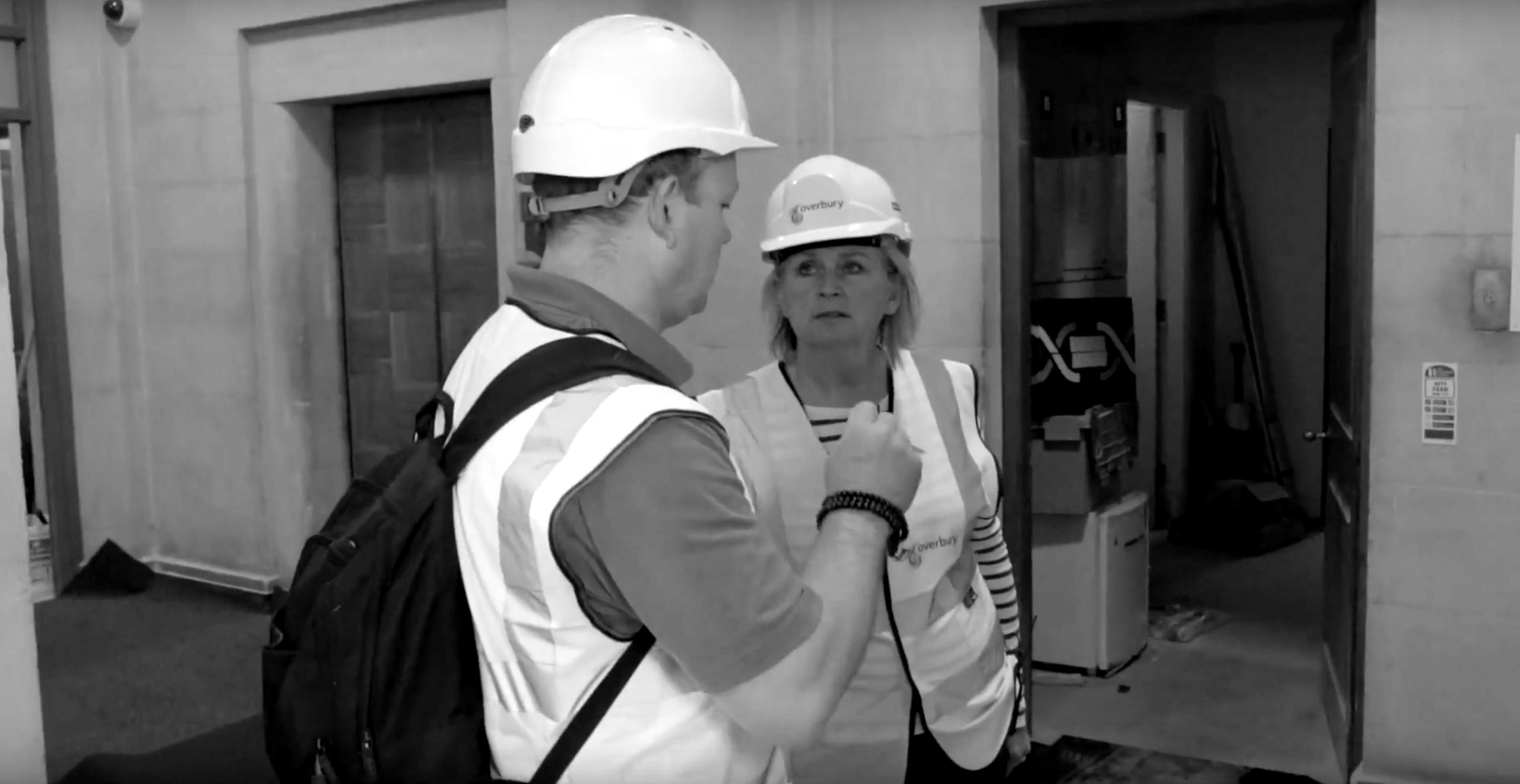— The PLACEmaking blog
What will be the impact of COVID-19 on career prospects?
Author
Alison WhiteDate
March 16, 2022Alison White of PLACEmaking reflects on how career planning might be influenced by the COVID-19 pandemic
Concerns have been raised that for some, the enforced home alone working imposed by the COVID-19 pandemic regrettably had a negative impact on their well being. Attention has also been drawn to others, particularly some at the beginning of their careers, who report finding the lack of one to one mentoring and physical isolation from more experienced colleagues proving a barrier to the osmosis of knowledge exchange. With hybrid working now firmly established as a key part of the post-pandemic new norm, employers need to be creative in developing new career development pathways replacing old style daily office presenteeism.
 Graphic by Fintan Burke
Graphic by Fintan Burke
Who could have foreseen the suddenness of the nationwide closure of offices and the complexities associated with limiting access to only those who had legitimate reasons to continue to use them? Great effort was made by property teams across multiple sectors to minimise the risk of cross infection in the office, imposing one-way routing systems, safe desk distancing and thorough cleaning of surfaces. The message of hands: face: space dominated every noticeboard in partially-opened workplaces leaving no one in any doubt that being together in the workplace, the very thing that we had become accustomed to as the heart of many professional working lives was in fact risking our health, the health of our colleagues and those we returned home to after a trip to the office. Going to the office could, it turned out, put us in peril. No surprise then that some were drawn to the office assuming it would all operate as before but never returned even when the lockdowns were relaxed because the actually experience was in fact poor.
After an inevitable bumpy start in March 2020 to enforced working from home when many assumed it would only last a few weeks, people started to adjust and realise they could get to grips with collaborating by Zoom and gradually adjusted their style of communicating with colleagues. We all became aware that our colleagues were not just two dimensional work operatives as we might have previously perceived them. Through Zoom we saw their home setups which were mostly just as imperfect as our own. We heard their dog bark, their children play and the delivery alerting door bell ring repeatedly bang in the middle of important meetings. Gradually we stopped apologising for unforeseen domestic interruptions and pretending all the books on the shelves so carefully arranged ahead of our Zoom meeting, had actually been read. We started to relax, we dressed down, we became more open, more accepting, more empathetic and somehow that more human side was reinforced by the domesticity of the environment we were operating from.
As we move forward now with the work from home messaging reversed, staff survey after survey clearly demonstrate that a high proportion want to continue to work from home on balance more often than go in to the office every week. Addressing now the issues raised by those that regard the shift away from predominately working in the office problematic must be the focus and many employers are actively addressing these issues. However, a wholescale forced return to pre COVID office based working cannot be the solution, so creative thinking is needed.
Focusing on mentoring in particular, it would be easy to assume that pre pandemic face-to-face mentoring of new recruits by more experienced seniors was both universally popular. In reality it was very successful for some and for some of the time but the opposite was also true. Where it was successful both senior and junior staff got huge value from their joint working activities and as a consequence were supporters of continuing the approach for the next generation of recruits. For others though it was less successful resulting in them praying for it to be over and as painlessly as possible or being so put off that if they were the junior opting for a different career and if they were a senior avoiding repeating the mentoring role ever again. The role of the office in bringing together senior and juniors was often key and in some sectors where one ‘sat’ very clearly defined who was mentoring you as well as where you were in the pecking order, defining your rank and status for your colleagues, your peers and your future subordinates. One can imagine that in some industries being trained by someone with advanced skills is predominately done through demonstration and incremental expansion of skills transfer and in some office environments proximity to those with limited experience being close to someone with more experience was essential in order to reduce the risk of something being done or said that could prove dangerous/expensive or reputationally damaging.
Other ‘office’ based sectors and especially younger entrants in to even traditional industries were challenging these conventions pre pandemic and reported this contributed to having a high percentage of staff retention and a wider demographic of recruitment even during the lockdowns. They focused on encouraging new recruits to help develop a bespoke framework that reflected their personal preference for how their mentoring was planned and delivered. One that avoided some of the less successful approaches of the past, i.e. lots of hanging around for recruits with interspersed high drama and intense demands for assistance from seniors. They developed the plan, gained buy-in from a range of experienced others and continuously reported progress with the aim of focusing on the positives and building a richer mentoring experience.
During lockdown a continuation of the same approach was maintained with the third dimension of complexity being limited physical co-working. Whilst there were of course problems some of which couldn’t be overcome, what was interesting was the feedback that reflected a change of tone especially from seniors to juniors which to some degree compensated for the lockdown related losses. And what was at the heart of that seems to have been the visual Zoom connection perhaps creating a more even playing field and realisation that away from the office everyone was actually in the same boat (some more lavish of course than others) but still everyone was doing their best, were bringing skills, aptitudes and attitudes that could be shared and in reality no one had all the answers.
Subscribe to our mailing list
Let's Work Together
Office
Box 18, Boxworks
Clock Tower Yard,
Bristol BS1 6QH

